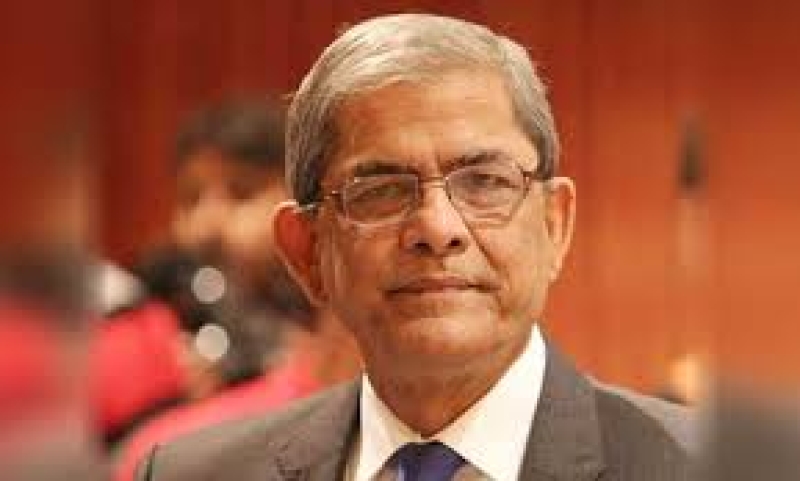- Puppet show enchants Children as Boi Mela comes alive on day 2 |
- DSCC Admin Salam’s drive to make South Dhaka a ‘clean city’ |
- 274 Taliban Dead, 55 Pakistan Troops Killed |
- Now 'open war' with Afghanistan after latest strikes |
- Dhaka's air quality fourth worst in world on Friday morning |
‘Ice is Melting’ in BNP-India Relations: Fakhrul

The Bangladesh Nationalist Party (BNP) believes that the “ice is melting” in its relationship with India following the formation of an interim government after a student-led movement led to the ousting of Prime Minister Sheikh Hasina.
Under the leadership of Begum Khaleda Zia, who has previously served two terms as prime minister, the BNP has been critical of various agreements made with India during Hasina’s tenure. This criticism has contributed to tensions between the BNP and New Delhi. However, a recent meeting between Indian High Commissioner Pranay Verma and BNP Secretary General Mirza Fakrul Islam Alamgir marks a notable step towards improving ties.
Alamgir told that the high commissioner's visit signified positive developments for both nations. “There were concerns about our relations since the last election, but the high commissioner's visit to our office has certainly improved the situation. Ice has started melting,” he stated. The BNP had boycotted the January 2024 parliamentary elections.
He emphasized the importance of the India-Bangladesh relationship, noting, “This is a turning point for our ties.” The BNP has assured India that if it regains power, it will prevent Bangladeshi territory from being used by separatist groups that have previously sought refuge in Bangladesh.
“We discussed a normal relationship between our countries, including water-sharing issues, border incidents, and trade imbalances,” Alamgir explained. “India's primary concern is security, and we assured them that we will not allow separatists to operate from our land.”
The recent political upheaval saw Sheikh Hasina flee to India on August 5, following weeks of protests that resulted in over 600 fatalities. An interim government led by Nobel Peace Prize laureate Muhammad Yunus was subsequently established. Although the BNP is not part of this interim setup, it is poised to be a significant contender in upcoming elections.
Khaleda Zia was released from prison a day after Hasina’s government fell. Mirza Fakrul expressed hope for a renewed understanding between India and the BNP, saying, “There have been misunderstandings in the past, but I believe that ice has started to melt. India should understand the pulse of our people and foster deeper people-to-people connections.”
Further signs of thawing relations were evident when External Affairs Minister S. Jaishankar met with Md. Touhid Hossain, the foreign affairs advisor of the interim Bangladeshi government, on the sidelines of the 79th United Nations General Assembly. Alamgir described this meeting as significant for strengthening bilateral ties.
The BNP, a longstanding rival of Hasina’s Awami League, has called for the former prime minister to return to Bangladesh and address the allegations against her. “I am unaware if the government has officially requested India to return her, but she should come back to face accountability,” he said.
As Durga Puja approaches, the BNP is also attentive to the safety of the Hindu minority, which will celebrate the festival at over 32,000 pavilions nationwide from October 9 to 13. “We are concerned about the narrative that Hindu communities are in danger,” Alamgir remarked. “While there may be political issues, they are not inherently communal. We are vigilant to protect our minorities, especially during the festival.”
The BNP is optimistic about transitioning from an interim government to a democratically elected one in the near future, signaling a potential shift in the political landscape of Bangladesh.

